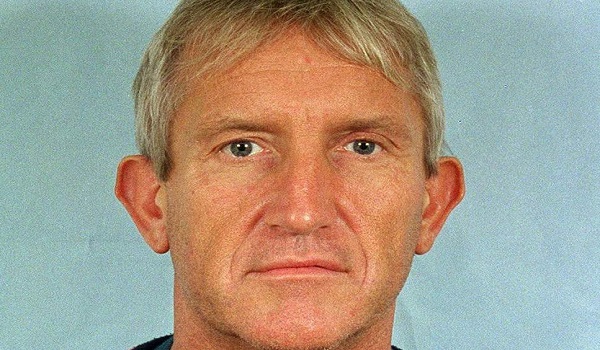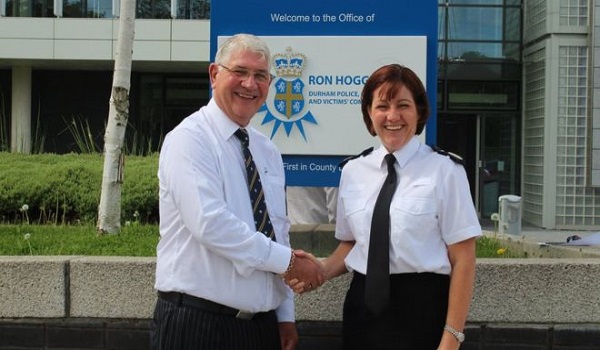Almost one in five of the police workforce suffers a form of PTSD
Researchers and a policing charity are calling for “national mental health strategy” after the first force-wide study into post-traumatic stress disorder (PTSD) in UK law enforcement found two thirds of officers and staff do not know they have the illness.
According to early findings from the largest survey yet undertaken, which focused on police wellbeing and screened for clinical symptoms of PTSD and complex-PTSD, 90 per cent of police workers who responded had been exposed to trauma. Of these, one in five reported experiencing symptoms in the past four weeks.
The research has been conducted by a team of sociologists at the University of Cambridge and funded by the charity Police Care UK.
Researchers analysed responses from 16,857 of the serving officers and operational staff who participated in ‘The Job, The Life’, a major survey carried out across England, Wales, Scotland and Northern Ireland during autumn last year.
PTSD is an anxiety disorder in which traumatic or life-threatening events cause disturbing memories to recur as well as intense states of “hypervigilance”.
Sleep disturbance, irregular heartbeats and sweats are common and can lead individuals to self-medicate with drugs and alcohol. The research found eight per cent of those workers exposed to trauma had clinical symptoms of PTSD.
Complex-PTSD is a categorisation recently adopted by the World Health Organisation (WHO). It sees PTSD symptoms “harden” through repeated trauma exposure into a chronic condition of emotional numbness and disconnection.
Those suffering from complex-PTSD struggle to regulate their emotions, and often feel empty or hopeless as they become increasingly detached from family and colleagues. Researchers found 12 per cent of trauma-exposed respondents showed clear signs of the condition.
The researchers say their study suggests that overall PTSD rates in law enforcement are almost five times higher than general UK population levels, last estimated at 4.4 per cent in 2014.
However, less than a third of those who showed signs of either disorder had been informed and understood this to be the case.
“For the first time in the UK we can see behind the cultural trope of the burnt-out copper who has seen too much. This is a clinical and public sector crisis,” said lead researcher Dr Jess Miller from the University of Cambridge’s Department of Sociology, who conducted the work with her colleague Dr Brendan Burchell.
“Dealing with disturbing experiences is a defining part of policing, but employees have a right to expect resources to protect them from the impact of daily trauma exposure. Without such resources in place, the cost to policing and public safety will just mount up.
“Over half of our respondents said they had insufficient time to process incidents before being sent back out on the next call.”
Dr Miller said “a stiff upper lip attitude” will not work in contemporary policing, adding: “Without decent interventions and monitoring for trauma impact, and a national conversation involving the Home Office and Department of Health, the alarming levels of PTSD our study has uncovered will stay the same.”
Repeated trauma exposure may also increase risks of long-term physical illness in the policing workforce. The survey results showed those with complex-PTSD symptoms reported three times the rate of cardiovascular disease as those without, and twice the levels of both gastrointestinal issues and immune disorders such as IBS and arthritis.
Even in the 80 per cent without clinical levels of PTSD or complex-PTSD, half reported overall fatigue, half reported anxiety, and half reported trouble sleeping – all over the past 12 months.
Results will be shared with the service with individual results providing statistically significant breakdowns for 22 forces. Dr Miller said there are variations in the results across the forces but none are statistically significant. However, Northern Ireland provided higher signs of PTSD in certain areas of the survey.
Following the release of the study on Thursday (May 9), Police Care UK, a charity supporting the police and their families, called for a national policing mental health strategy. It said the 50 UK policing employers all have a different approach to the issue, and there is a “postcode lottery” when it comes to attitudes and access to trauma management.
“There is no comprehensive strategy to tackle the issue of mental health in policing, and that has to change,” said Gill Scott-Moore, chief executive of Police Care UK.
“The service has real challenges around recognising and responding to the signs and symptoms of trauma exposure and is heavily reliant upon generic NHS provision that isn’t equipped for the specialist treatment needed.”
Researchers found that just 16 per cent of those that did seek help turned to their force. The vast majority of support was sought independently, typically medication or counselling, but also one in ten adopted mindfulness training.
‘The Job, The Life’ is the first major study to use the WHO-adopted screening questionnaire for complex-PTSD, which Dr Miller describes as “the brain’s gradual maladjustment to the extraordinary”.
“Relentless filing of horror and human suffering inevitably changes who we are. We can start to doubt the meaningfulness of what we do and our role in the world,” she said.
Participants were invited to reflect anonymously on their everyday experiences of trauma exposure and sense of PTSD.
One officer with 17 years’ service described how night terrors developed after attending a series of murder scenes: “I’d wake up in hot sweats with constant dreams of the dead people.”
Another recalled dealing with complex sexual abuse cases as sole investigating officer: “Little or no support from management. Victims hanging all their hopes and pressures on me.”
Some describe days and even months in windowless rooms reviewing “terrorism material of a horrific nature” or the “chatlogs” of paedophiles. One officer talked of how reliving a death in custody through the formal investigation led to a nervous breakdown and suicidal thoughts.
“Considering we are clearly one of the more significantly at-risk groups in society, the police are really bad at managing mental health issues resulting from trauma,” said one officer. “We are even worse at prevention than we are at cure.”
Elsewhere, the researchers found effusive praise for treatment and support given by supervisors and force psychologists. “I dread to think how my life would have ended up without the support that was made available to me,” said a staff member from Major Investigations with more than 30 years’ service. “The worst aspect of being ill was that I was simply doing my job.”
There were also suggestions that budget cuts to policing have exacerbated mental health problems. “Policing requires teamwork, colleagues around for support, that’s no longer the case and has not been for several years. I have paid the price for that,” said one officer with 16 years’ service diagnosed with PTSD.
Many described the cumulative effect of frequently experiencing traumatic incidents, but there was also an understanding and acceptance that this was simply part of the job.
The National Police Chiefs’ Council lead for wellbeing, Chief Constable Andy Rhodes, said the research demonstrates that despite progress in how the police handle trauma and mental health within the service, there is “still got some way to go”.
Exposure to trauma is one reason Mr Rhodes leads reform of the service to better support the wellbeing of the service.
“I entered policing without the slightest idea of what I was about to see on a daily basis,” he said. “Sudden infant deaths, suicides, fatal road collisions all became part of the rhythm of a job I quickly adapted to, or so I thought. What I didn’t spot was how these traumatic incidents were starting to change how I was feeling and thinking about the world around me.”
He first realised he was suffering when he was required to regularly attend post-mortem examinations – on occasion as many as three in a day.
He said: “It’s OK to not feel OK, and that the price we pay can’t always be seen. Sometimes it pops up when you’re not expecting it, but I hope you feel able to talk about it when it does.
“The findings of Jess’s study make explicitly clear how important it is that officers can share their feelings, because it showed that 90 per cent of us report trauma exposure, 98 per cent of which is work-related. Of those, 12 per cent report experiencing recent traumatic events with symptoms consistent with complex-PTSD and eight per cent with PTSD. That’s one in five of us.
“Many people’s coping mechanisms are to ‘shut down’ emotionally and all too often that serves to limit how much of our true selves we can bring to work. That’s not always a positive for the individual, the job or the public.
“All of us in policing should think about how we support each other so that everyone stays mentally and physically healthy while working in a trauma-heavy occupation – because trauma isn’t going to go away and most of us aren’t going to pack up and sell double-glazing instead.”
Police Professional May edition looks at the research in detail and how two forces, seen as ahead on preventing trauma impacting on officers and staff, are investing in wellbeing.







